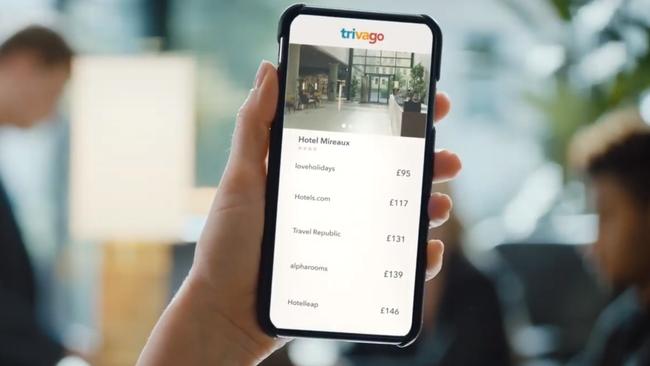ACCC seeks $90m fine over Trivago breach
The consumer watchdog wants travel booking company Trivago fined at least $90m in what would be one of the highest fines for breach of consumer law imposed in Australia.

The consumer watchdog wants travel booking company Trivago fined at least $90m in what would be one of the highest fines for breach of consumer law imposed in Australia.
The online travel site was found guilty of misleading travellers and contravening consumer laws over hotel rates on both its website and in television commercials in a court ruling brought by the Australian Competition & Consumer Commission last year.
The ACCC is seeking orders for declarations, injunctions, penalties and costs. The penalty hearing for Trivago continues before Federal Court Judge Mark Moshinsky.
In January, 2020, the Federal Court ruled that Trivago had misled consumers by claiming its website would quickly and easily help users identify the cheapest rates available for a given hotel.
Last November, the full Federal Court dismissed an appeal by Trivago against an earlier decision which had found the online travel site had breached Australian Consumer Law by making misleading representations about hotel rates.
During its failed appeal a Federal Court judge found that Trivago did not sufficiently disclose to users that its website used an algorithm that gave prominence to accommodation providers paying Trivago a higher payment fee (cost per click), meaning that the most prominent offers were often not the cheapest offers for consumers.
The primary judge also found that the Expedia-owned company misled consumers through the use of strike through prices and text in different colours because Trivago often compared the rate for a standard room with the rate for a luxury room in the same hotel.
At the time Australian Competition & Consumer Commission chair Rod Sims said this is a win for consumers and is an important warning to comparison sites that they must not mislead consumers about the results they recommend.
“We brought this case because we were concerned that consumers were being misled by Trivago’s claims that their site was getting the best deal for consumers, when in fact they were shown the deals that benefited Trivago,” Mr Sims said.
“Trivago’s conduct meant that consumers may have paid more for a room at a hotel than they should have, and hotels lost business from direct bookings despite offering cheaper prices,” Mr Sims said in a statement last year.
These days Trivago says it is a metasearch engine comparing accommodation prices and offers provided to it by many different booking sites including online travel agencies, accommodation chains and independent hotels. In order to supply its free comparisons, booking sites pay Trivago a fee when a user clicks on their specific offer.
“We do not display any offers (including cheaper offers) that do not meet our minimum fee requirements,” Trivago’s website says.






To join the conversation, please log in. Don't have an account? Register
Join the conversation, you are commenting as Logout